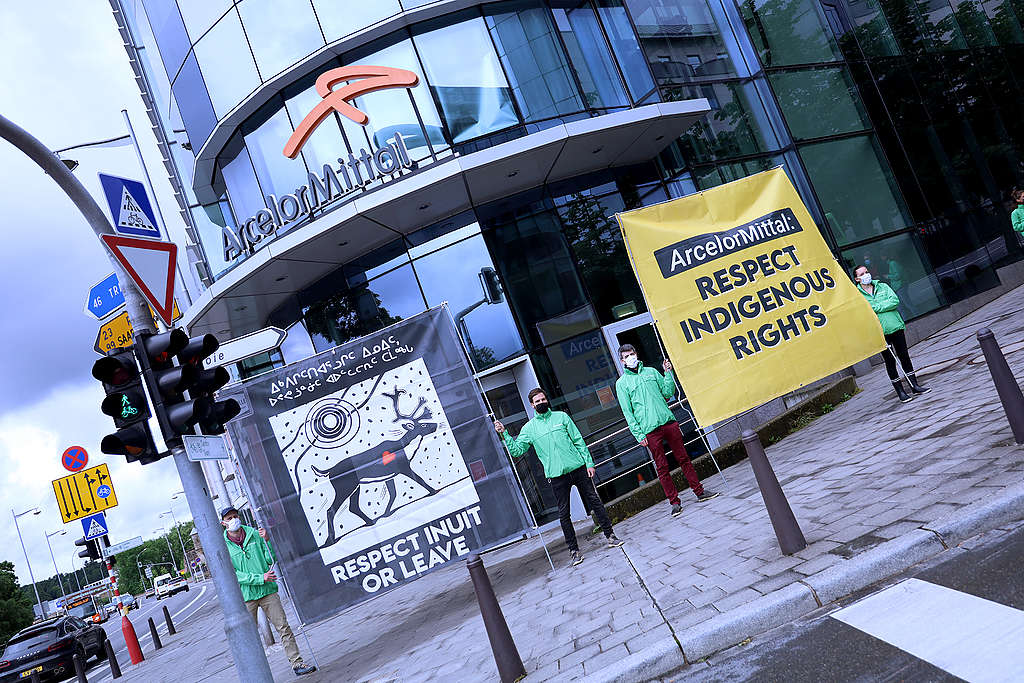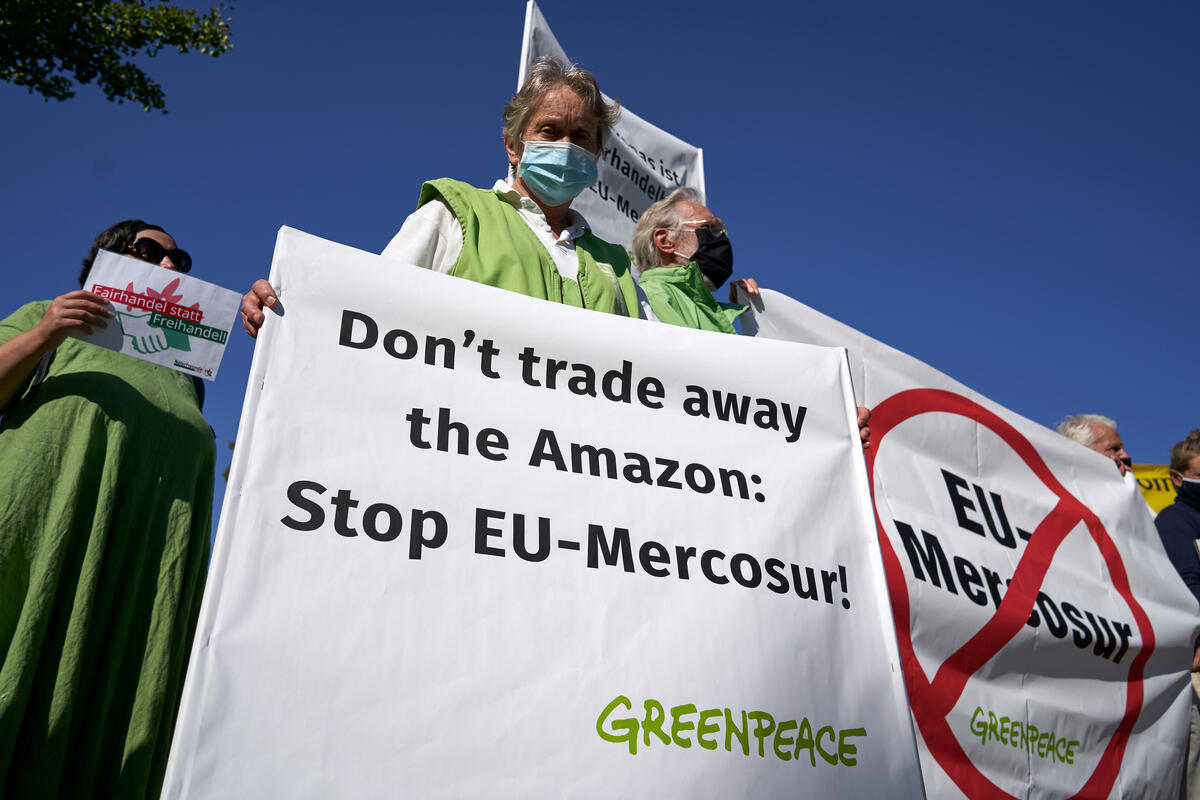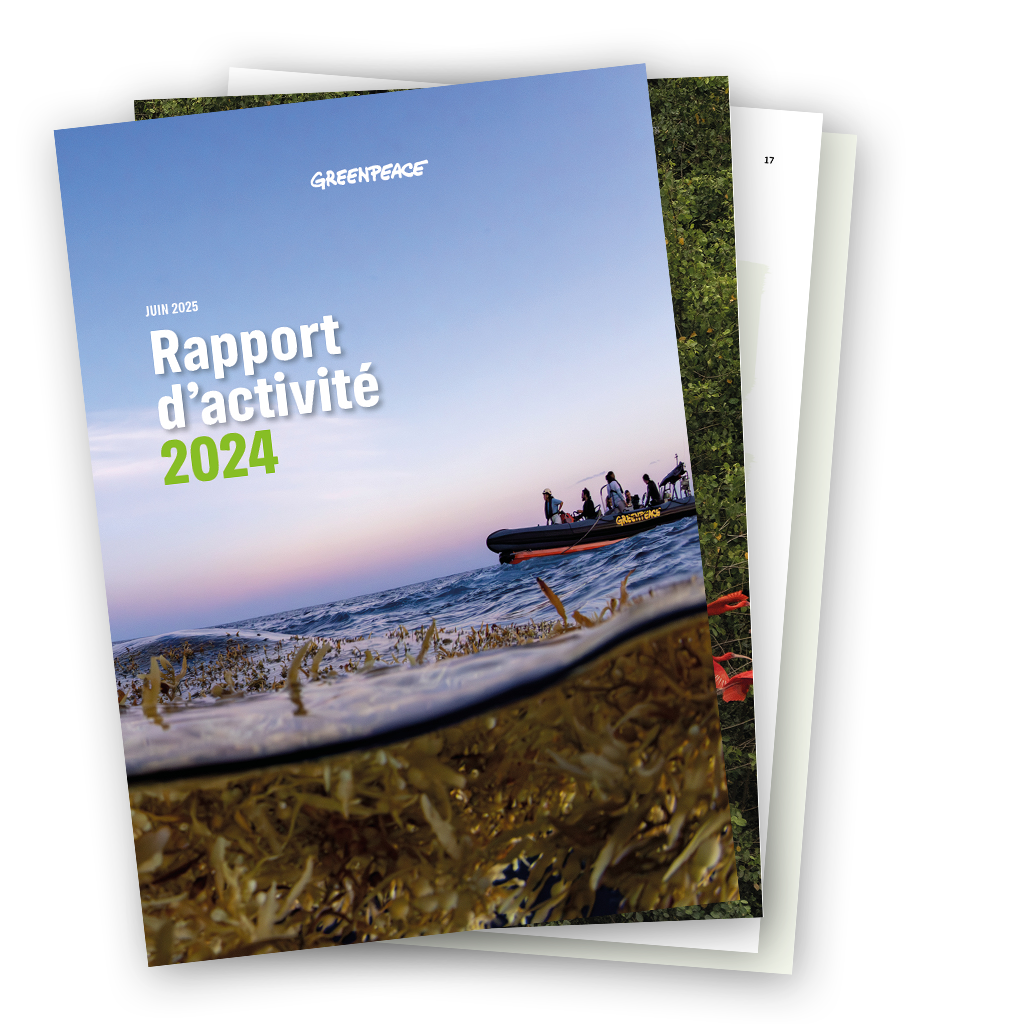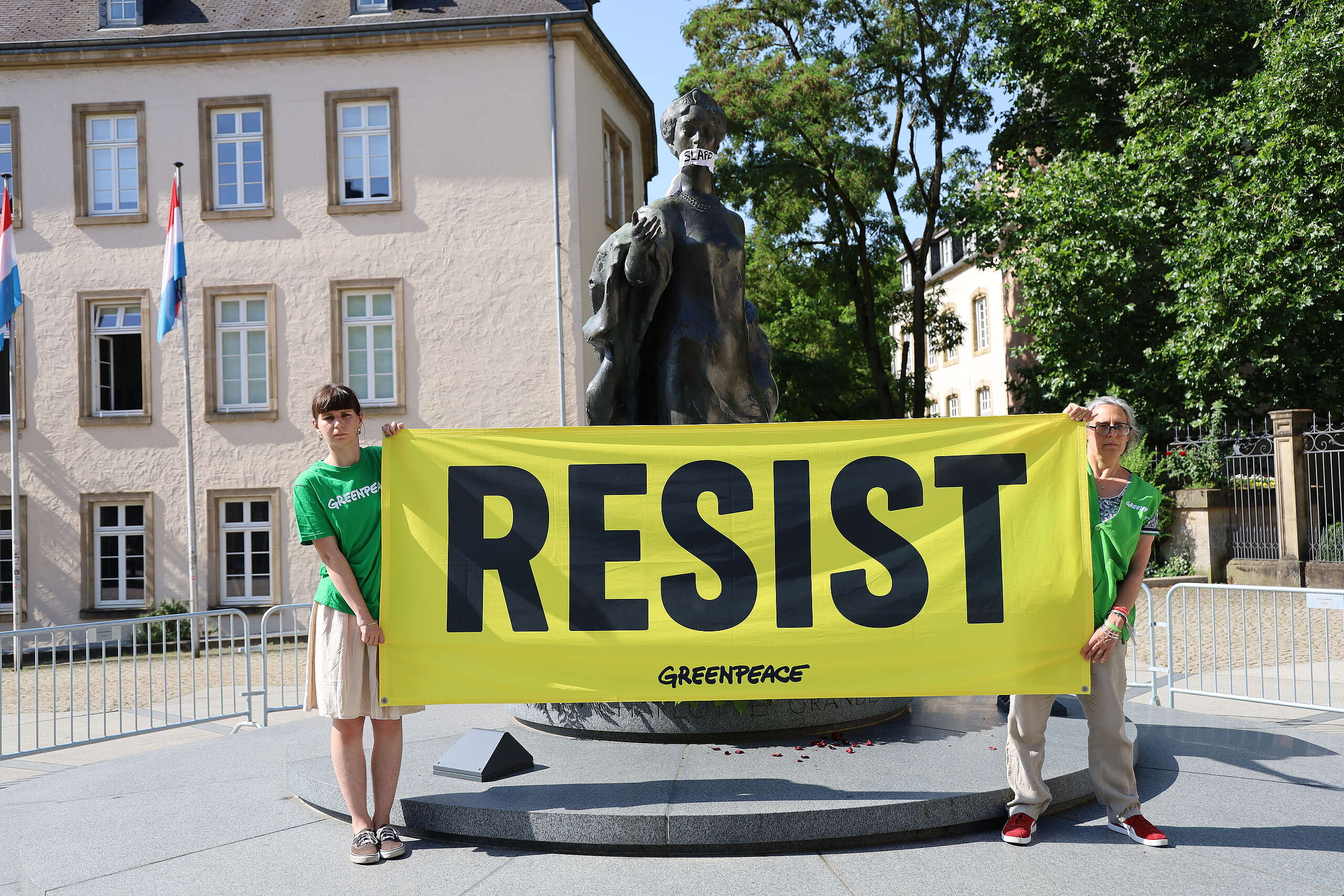Local indigenous communities oppose mine expansion
Luxembourg June 30, 2021 – This afternoon, Greenpeace activists gathered in front of ArcelorMittal’s headquarters in Luxembourg to protest in solidarity with Inuit communities impacted by an iron mine in the Canadian Arctic. The Inuit point to the mine’s harmful impacts on marine mammals, caribou calving grounds and traditional lands. The iron mine is operated by Baffinland, a company co-owned by ArcelorMittal. Baffinland is one of ArcelorMittal’s most important international iron ore suppliers.
“Our way of life as Inuit and our rights as Indigenous people are threatened by the operation of this mine,” said Lori Idlout, lawyer for the Nuluujaat Land Guardians, a group of Inuit formed in protest to the mine, from her home in the Canadian Arctic. “The Arctic animals we love and depend upon are seriously at risk. ArcelorMittal is an owner, customer, and financier of this mine and is responsible for environmentally sound operations and respect for our rights as Inuit.”
Activists carried banners reading “ArcelorMittal: Respect Indigenous Rights” and “Respect Inuit Or Leave”. The latter banner was designed by Christi Belcourt, an Indigenous artist living and working in Canada.

The Mary River mine sits in the Arctic archipelago in northern Canada, adjacent to important narwhal calving grounds and crucial harvest areas. It is operated by Baffinland Iron Mines Corporation, a company co-owned by ArcelorMittal and The Energy and Minerals Group, a U.S.-based firm.
Baffinland is seeking to expand production from 6 to 12 million tonnes per year, and proposes a first for the Canadian Arctic: a 100km railway to carry iron ore to a port at Milne Inlet, Nunavut, crossing an important caribou migration route. This expansion proposal is now undergoing regulatory review. ArcelorMittal has an option to provide additional equity for the proposed expansion.
“We may be a long way from Canada, but the decisions of Luxembourg-based steel giant ArcelorMittal directly impact the Canadian ecosystem Inuit hunters depend upon for survival,” said Myrna Koster, Climate Justice Campaigner at Greenpeace Luxembourg. “As a member of the “ResponsibleSteel” initiative, we are calling on ArcelorMittal to respect the interests of the Inuit hunters and refuse or reduce future investment in and expansion of the Baffinland project.”

Luxembourg citizens overwhelmingly support a legislative proposal to require Luxembourg companies to prevent environmental damage or negative impacts on human rights in their supply chains. In this context, Greenpeace Luxembourg is calling on the Luxembourg government, as a minority shareholder in ArcelorMittal, to oppose the expansion of the Mary River Iron Mine on Baffin Island.
The mine expansion has generated strong criticism from local, regional and territorial Inuit organizations based on the negative impacts on the environment and wildlife. Inuit communities continue to depend on Arctic wildlife for their food and culture, and are deeply concerned about the potential impact of the proposed expansion on their way of life. They are not opposed to all mining, but want to see it done in a socially and environmentally responsible way.
The Nuluujaat Land Guardians blockaded the mine for a week at the beginning of February to protest Baffinland’s actions and its refusal to address Inuit concerns.
ArcelorMittal is a member of the ResponsibleSteel initiative, whose principles include respecting Indigenous People’s right to Free, Prior and Informed Consent (FPIC) for projects impacting their rights.
Background Information:
According to ArcelorMittal’s recent filings with the U.S. Securities and Exchange Commission (SEC):
- Baffinland is one of ArcelorMittal’s principal international iron ore suppliers (p. 60).
- As of December 31, 2020 ArcelorMittal held a 25.23% share in Nunavut Iron Ore Inc., the parent company of Baffinland Iron Mines. The Energy and Minerals Group owns the remaining share in Nunavut Iron Ore (p. 95).
- ArcelorMittal has an option to provide up to US$85 million in equity funding for Baffinland’s expansion project (p. 95).
The ResponsibleSteel Standard includes a criterion around obtaining free, prior and informed consent from Indigenous communities for activities that may impact on their rights (p. 59-61).
View here Inuit testimonials from local Inuit hunters and elders documenting the significant environmental impacts of the Mary River mine.



